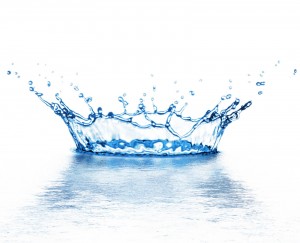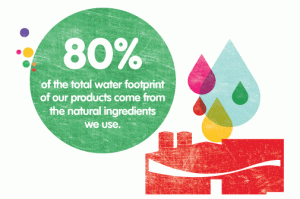
It’s no secret that along with the global warming crisis, water conservation is the next big concern that the world needs to watch out for. According to the recently released Global Risk Report, water is now one of the highest global risks (3rd after climate change and extreme weather events) faced by the international community, and for such a fundamentally significant resource to the existence of all living things on the planet – that’s a little too high for comfort.
First – let’s think about everything that we do/take for granted that isn’t helping. How many people do you know leave the tap on while they brush their teeth, or take ages in the shower just because they can, or have their sprinklers on all afternoon to keep their lawn looking ‘green’? It’s a habit most humans can’t seem to curb without some extended effort. In my opinion, as such an important resource to our everyday lives – water conservation begins first and foremost with behaviour change, and until that’s complete, a global movement in conservation will be hard to get going. And.. luckily, we know by experience, that this isn’t impossible.
Climate change, for instance, and the issues with global warming were brought up as early as the 1930s, but not until the 21st century have people begun, on a wide scale, to consider their carbon footprint. In grocery stores, it’s a rare sight to see a shopper in front of you at the cashier without a reusable bag, and out on the street, there are so many more bike-lanes taking over the main roads than ever before. 20 years ago, more bikes than cars on a road in Vancouver, for instance, would have been an unusual sight – but today, in 2014, it doesn’t sound all that strange, or impossible. Additionally, as we learn in this course, big brand companies today that don’t take the environment in to consideration when it comes to business planning are publicly chastised for not taking the proper, sustainable course of action. And, it’s now unusual to see a government administration or authority not have an ‘Environmental Action Plan’ on their agenda that doesn’t address global warming.

But going back to water conservation, it sounds like this discussion has only been around for the last decade or so – do we have to wait another 70 years to get into the proper ‘habit’ of things? I’d like to think that we won’t need to, with so many major companies like H&M and Coca Cola, and even cities (ie. Toronto, Vancouver, Boston) taking a direct approach in ‘mitigating water risk’. But what do you think? When do you think we’ll actually start to see a global shift in the way we use our water, on the same level that we see the world take on the issue of climate change?
Hi Michelle, I don’t know much about water conservation but just to play devil’s advocate: does conserving water in places where it’s abundant (like in Vancouver, or Canada more generally) help at all in places where it’s scarce? As far as I know, it’s too expensive to ship water from one place to another, so I’m not sure how people in Canada taking shorter showers actually helps with the water crisis, which is mostly taking place in areas with droughts (i.e. not in Canada). I could be wrong – what do you think?
Hi Noah!
So actually, I brought up this topic because I’m working on the water conservation project for Vancouver, and if we look at how Vancouver gets its water, it isn’t exactly as abundant as we think, and it could potentially become a problem in the future. You can take a look at what the reservoir levels are like for the city (where we get all of our water for showers etc.) here: http://www.metrovancouver.org/services/water/conservation/Pages/reservoir.aspx
The water levels appear to be getting lower over time, and for now it isn’t such a large problem, because rain water does replenish it during the winter months, but in the long run, as the population for the city gets bigger – that’s when our resources will start to become limited, and that’s why making an effort to curb water consumption habits in the city still make sense! It’s also got to do with the infrastructure we have to bring water to the city as well, which is limited, and this might also be why other cities have started getting into water conservation too like, Boston and Toronto. So I don’t know whether the conservation efforts would help in places where it’s ‘scarce’, but I think the point is bringing attention to the very liberal way some people use their water – because it could lead to a very big problem in the future. Side note: One city that’s almost completely drained their water supply is Las Vegas (I know it’s in a desert and a place where droughts are common, but it just adds a little perspective) – Lake Mead, where most of their water is taken from is now reaching critically low water levels..and there doesn’t appear to be any substantial conservation measures taking place as of yet.
Cool- thanks for the info!